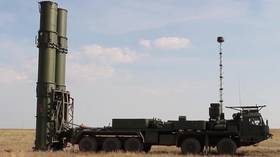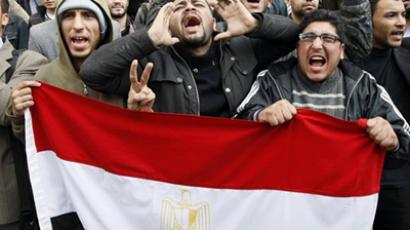Regime change: the 21st-century energy source
The US and Europe are to hammer out harsh penalties for Syria and Iran at a joint summit in Washington on Monday, but their objectives are widely being seen as far from democratic.
The summit comes as the US and Europe seek new ways to strengthen their global position, with Tehran and Damascus proving a tempting source of fortification as hawks call for regime change in one nation and a megaton of discipline in the other.Observers believe European politicians are joining with the US president in turning tensions around Syria and Iran to economic gain. After all, the decision on whether or not to meddle in a foreign country’s affairs is never entirely selfless. Looking at Iran, for example, a country with vast natural resources, it is not hard to see the benefits of such a venture. Iran is the world’s third-largest oil exporter. It is second in gas reserves.And the US is not getting any of the Iranian oil.Europe, on the other hand, accounts for a significant proportion of Iran’s crude exports.Despite facing severe energy problems, it has recently stopped buying oil from Syria and might stop buying crude from Iran as well if the EU decides to impose an oil embargo on the Islamic Republic. But analysts say the West will not be able to do without Middle Eastern oil for long. “They would need more oil, more gas, a lower price for oil and gas, a more steady supply,” financial analyst Max Wolff told RT.How to make it happen?“What they would like to do is make the population so economically miserable that they would seek to change the regime,” believes Professor Lawrence Davidson, a MidEast expert from West Chester University. “The second way is to isolate the country from its neighbors to the point where you can safely, without too many complications, go in and simply attack Iran and destroy the regime through destroying the country.” The US and the EU are trying to press Iran’s biggest trade partner, China, to do less business with Tehran. And the US is now calling on Pakistan to stop building a gas pipeline with Iran.Isolation seems to be the strategy – regime change, the endgame. And the benefits could be enormous.
On Monday, Iran’s parliament voted to expel British ambassador in Tehran in response to the UK ordering its financial institutions to stop doing business with the Islamic Republic over its alleged nuclear weapons program.Dr. Foad Izadi from Tehran University says Tehran is not afraid of the US and its allies.“Iran is used to sanctions because Iran has been under sanctions for the last 30-something years.”Izadi believes the possibility of military attack against Iran is quite low given the oil prices and the fact that Iran is able to defend itself.













